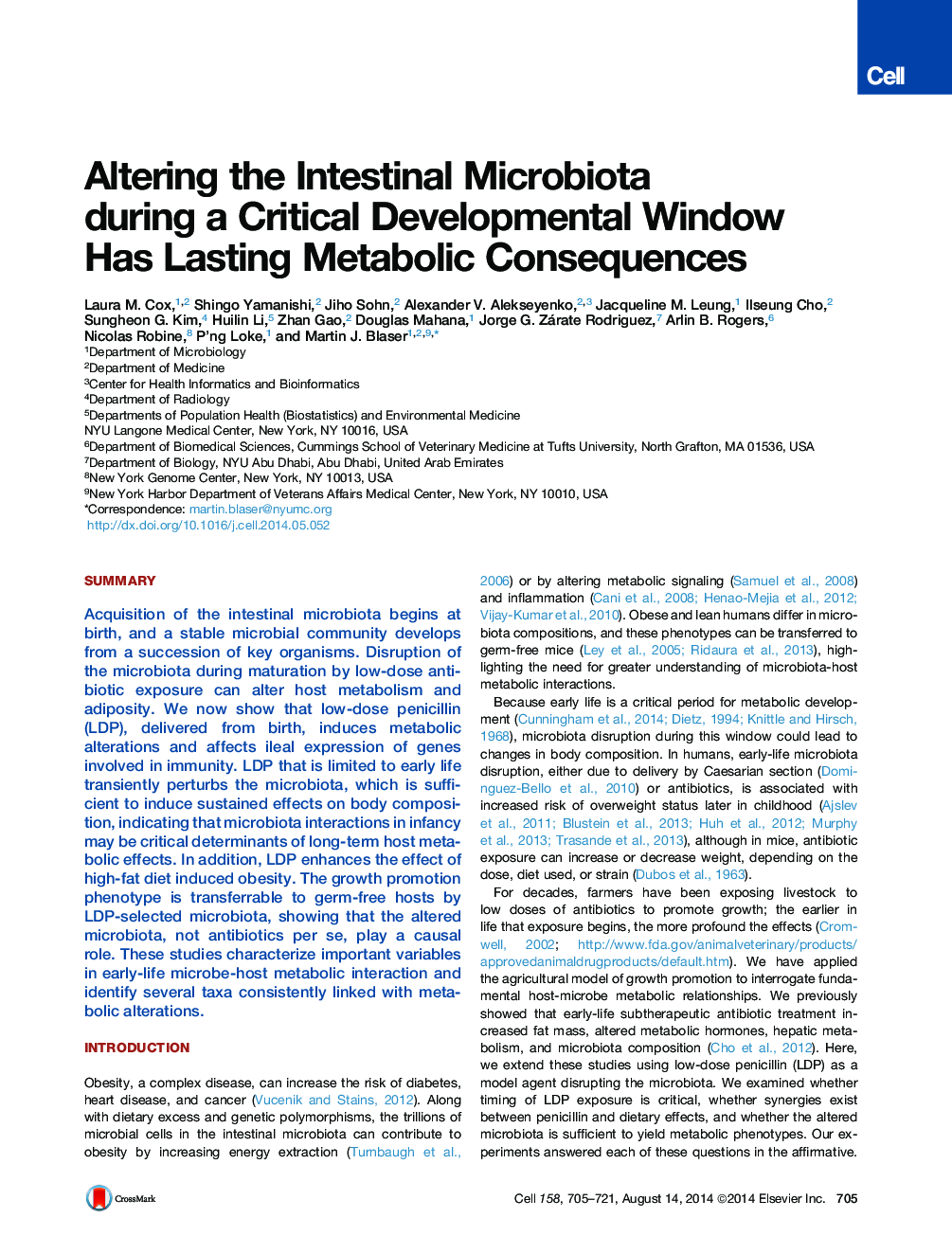| Article ID | Journal | Published Year | Pages | File Type |
|---|---|---|---|---|
| 2035396 | Cell | 2014 | 17 Pages |
•Early life is a critical window of host-microbe metabolic interaction•Low-dose penicillin treatment amplifies diet-induced obesity•A transient early microbiota perturbation leads to long-term increased adiposity•The penicillin-altered microbiota has a causal role in inducing metabolic changes
SummaryAcquisition of the intestinal microbiota begins at birth, and a stable microbial community develops from a succession of key organisms. Disruption of the microbiota during maturation by low-dose antibiotic exposure can alter host metabolism and adiposity. We now show that low-dose penicillin (LDP), delivered from birth, induces metabolic alterations and affects ileal expression of genes involved in immunity. LDP that is limited to early life transiently perturbs the microbiota, which is sufficient to induce sustained effects on body composition, indicating that microbiota interactions in infancy may be critical determinants of long-term host metabolic effects. In addition, LDP enhances the effect of high-fat diet induced obesity. The growth promotion phenotype is transferrable to germ-free hosts by LDP-selected microbiota, showing that the altered microbiota, not antibiotics per se, play a causal role. These studies characterize important variables in early-life microbe-host metabolic interaction and identify several taxa consistently linked with metabolic alterations.PaperClip To listen to this audio, enable JavaScript on your browser. However, you can download and play the audio by clicking on the icon belowHelp with MP3 filesOptionsDownload audio (12452 K)
Graphical AbstractFigure optionsDownload full-size imageDownload high-quality image (235 K)Download as PowerPoint slide
